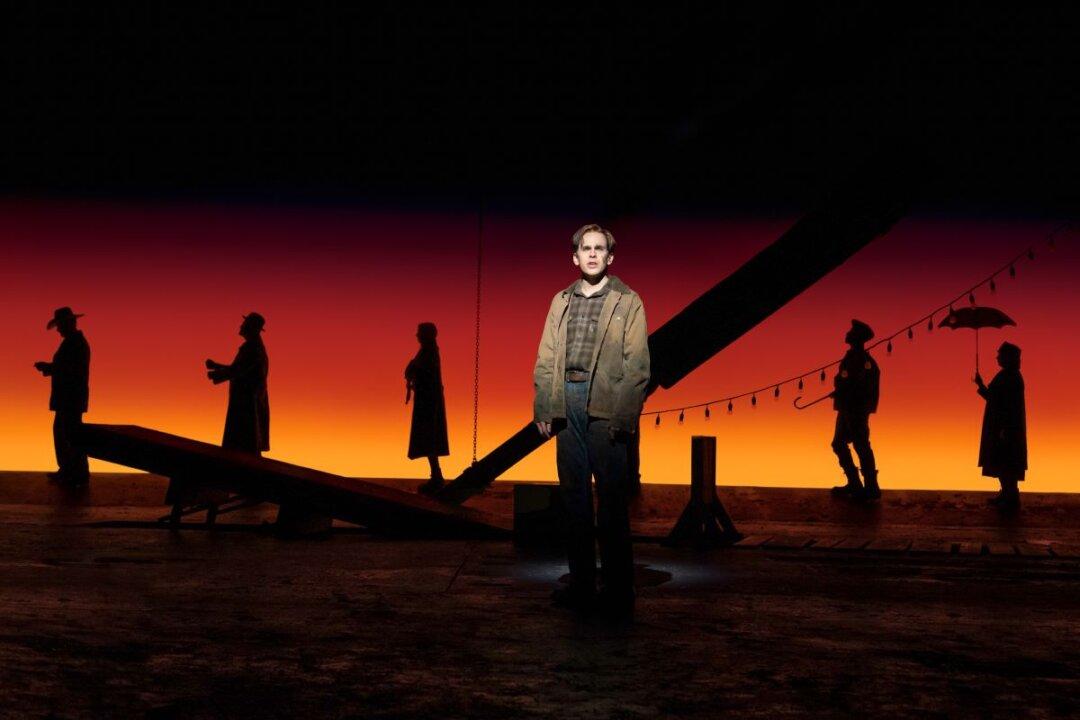NEW YORK—Floyd Collins (Jeremy Jordan) may have been a dirt farmer, loving brother, and enthusiastic spelunker, but as the Broadway musical which bears his name makes clear, he was first and foremost, a dreamer. Firmly believing he possessed a special kind of luck, he was determined to make an important discovery.
Making its Broadway debut more than 30 years after its initial premiere, “Floyd Collins” is told from perspectives both above and below the Earth’s surface. It was Collins’s dream that caused him to undertake a solo underground expedition in 1925, not far from his family’s Kentucky farm, to find a cave formation he was certain existed there.





